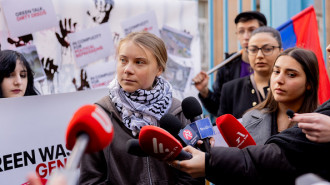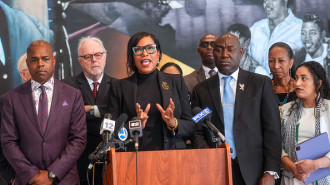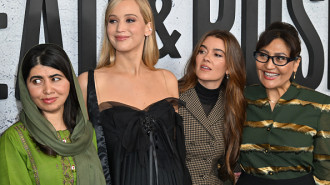The one-day roundtable brought together countries fiercely at odds across the region.
Turkey, Saudi Arabia, Jordan, Syria and Kuwait sent the heads of their legislative bodies, while Iran dispatched a senior parliamentary official.
Hosted by Iraq's youngest-ever speaker of parliament, 38-year-old Mohammed al-Halbusi, the meeting lasted just shy of three hours.
The countries pledged to support stability, reconstruction and development in Iraq, which has been ravaged by several decades of conflict including a three-year battle against the Islamic State group.
"The stability of Iraq is necessary for the stability of the region," read the concluding statement.
Participating nations also rejected "interference" in Iraq's internal affairs, although most have deep political and economic interests in the country.
Attendees did not announce any diplomatic breakthroughs, despite the summit's symbolic success in bringing together rival countries around a single table.
Baghdad has sought to market itself as a neutral meeting place for the Middle East's competing forces.
Iraqi premier Adel Abdel Mahdi recently visited both Riyadh and Tehran.
Saudi Arabia and Iran severed diplomatic ties with one another in 2016 and are locked in proxy wars across the region.
Turkey and Iran have backed opposing sides in Syria's conflict, which since 2011 has isolated Damascus diplomatically.
As part of its new regional role, Baghdad has sought to restore Syria's membership of the Arab League.
Follow us on Twitter: @The_NewArab







 Follow the Middle East's top stories in English at The New Arab on Google News
Follow the Middle East's top stories in English at The New Arab on Google News


